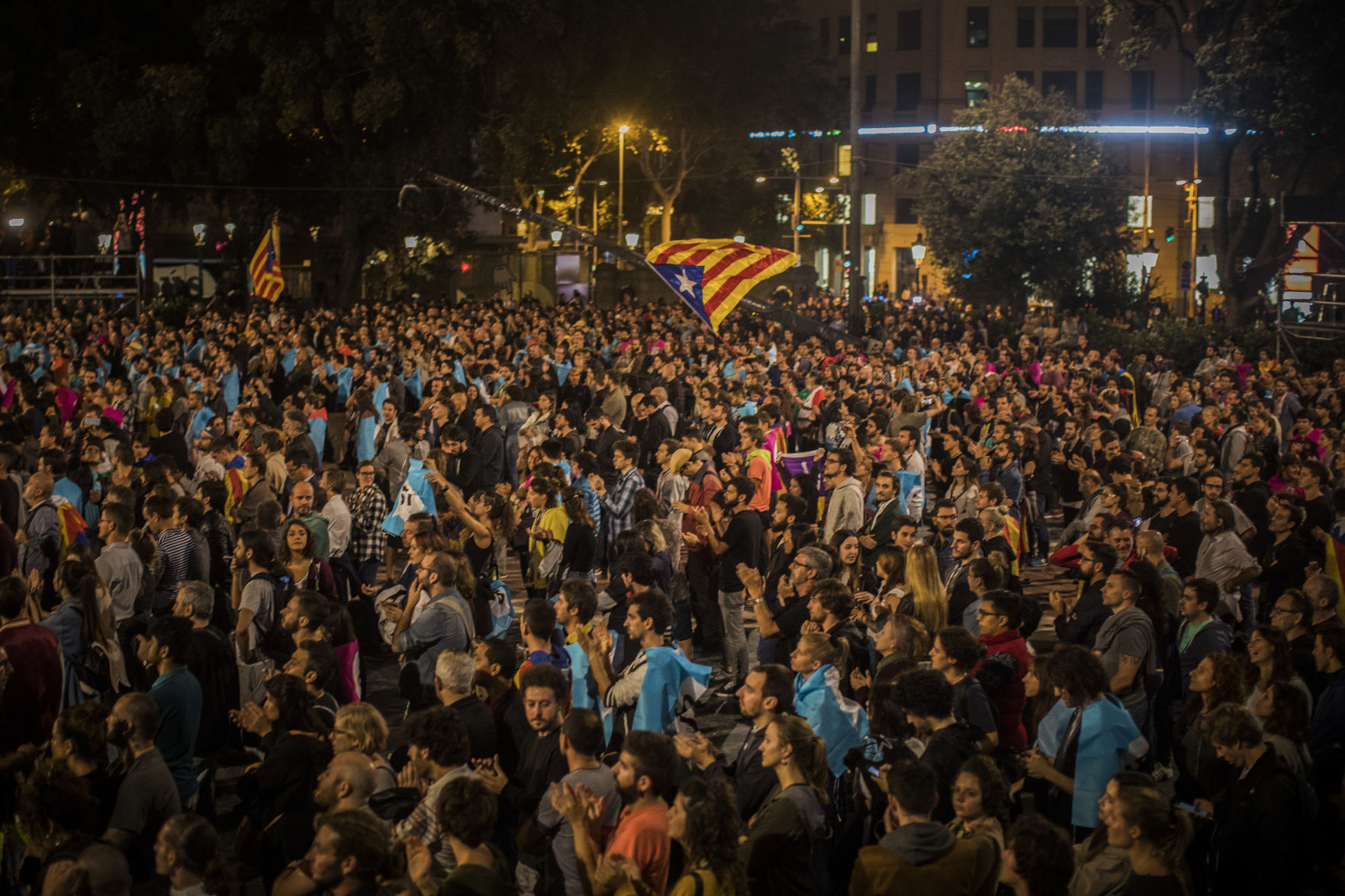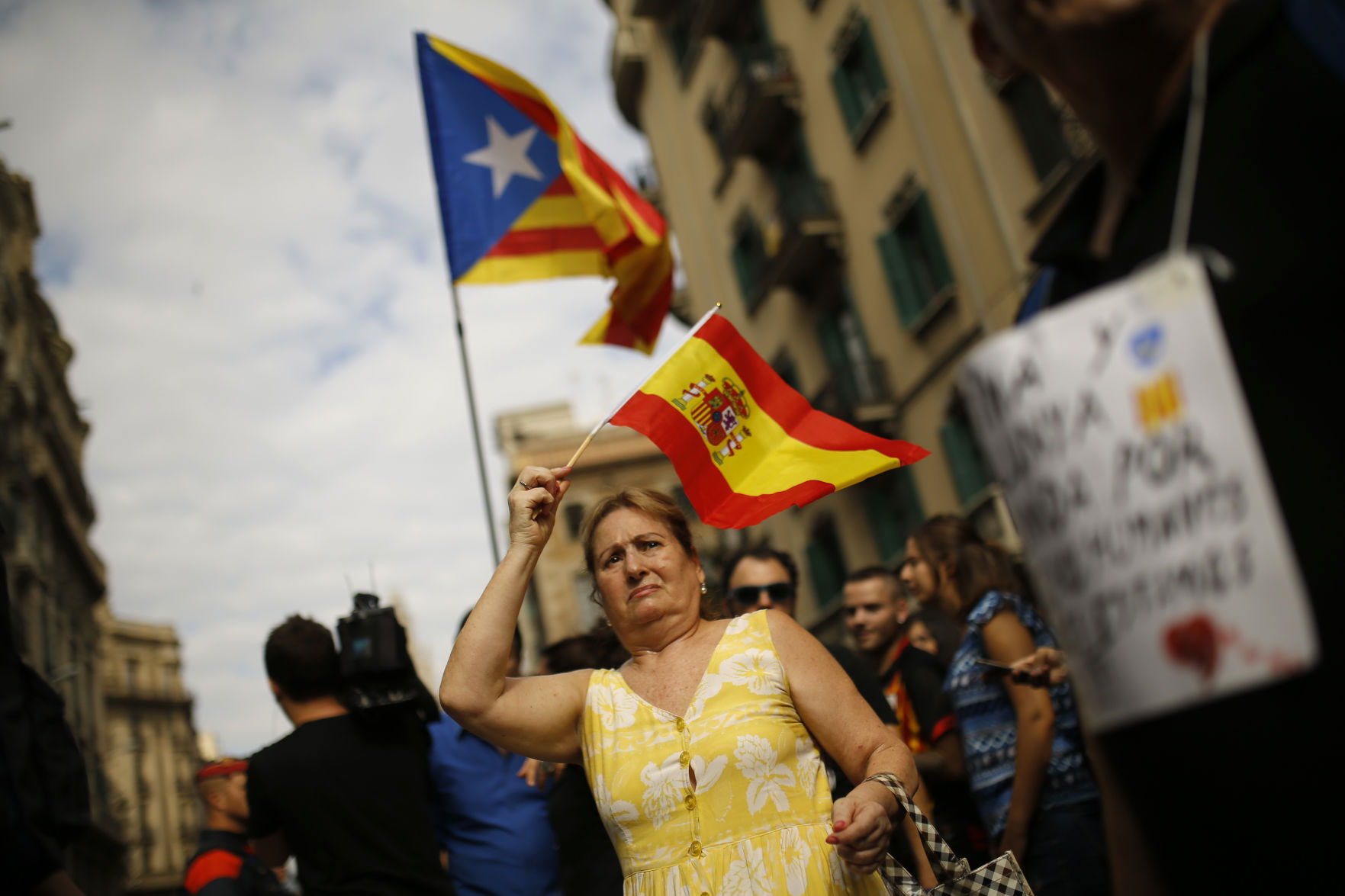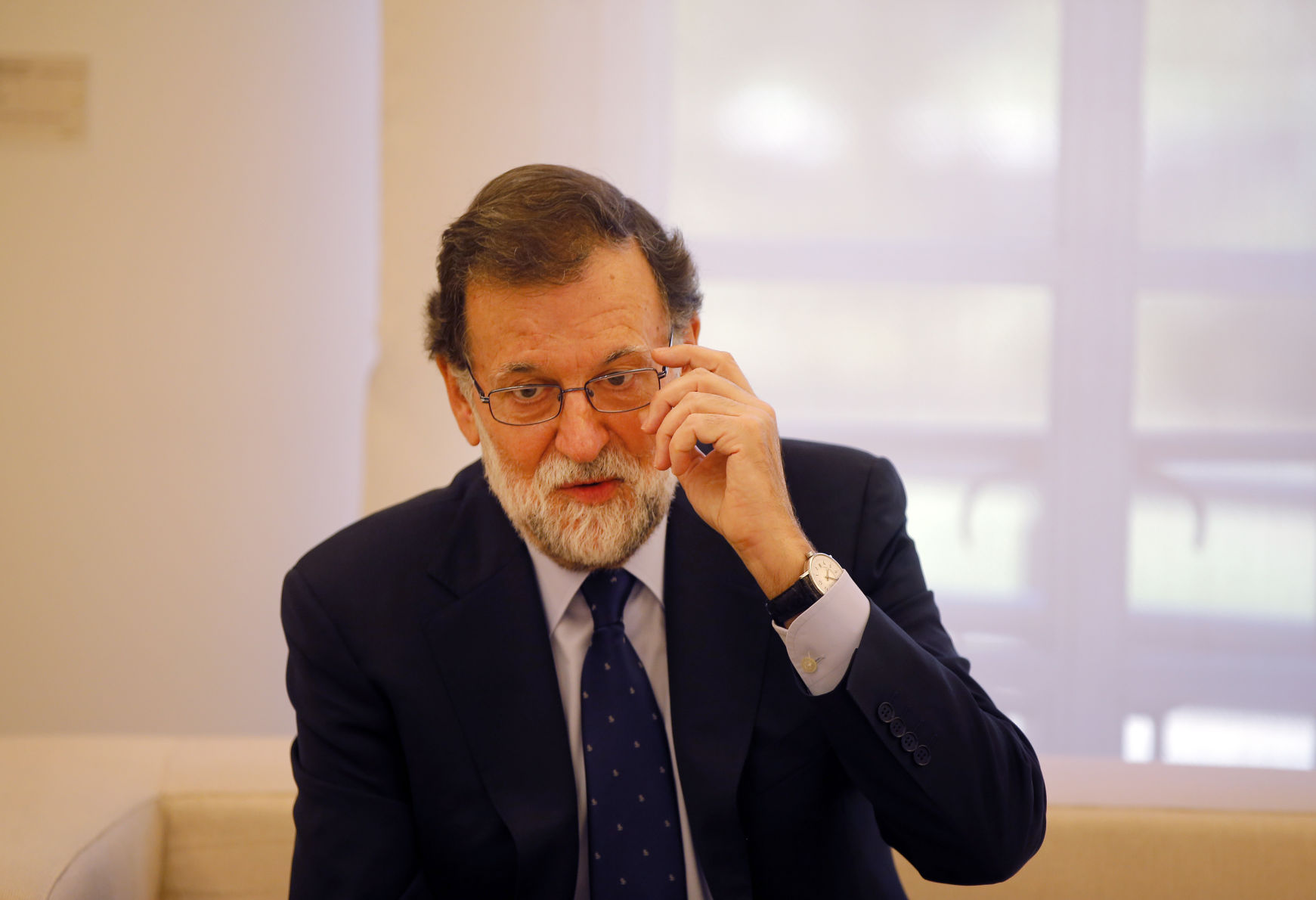BARCELONA, Spain (AP) — Striking workers, students and hundreds of thousands of protesters took to the streets of Barcelona and other Catalan towns Tuesday to protest police violence, adding pressure to Spain’s unprecedented political crisis as central authorities mull how
BARCELONA, Spain (AP) — Striking workers, students and hundreds of thousands of protesters took to the streets of Barcelona and other Catalan towns Tuesday to protest police violence, adding pressure to Spain’s unprecedented political crisis as central authorities mull how to respond to separatists’ plans to push ahead with secession.
Separatist leaders in Catalonia have vowed to declare independence in the northeastern region this week following Sunday’s disputed referendum.
The central government has declared the vote illegal and invalid, but Prime Minister Mariano Rajoy has not disclosed what his response to the independence bid will be, or if he intends to go as far as suspending the region’s self-government.
The city’s urban guard said that 700,000 people joined Tuesday afternoon’s marches in Barcelona, after thousands more took part in scattered protests in the morning.
With protesters still in the streets, Spain’s King Felipe VI made a television appearance in the evening and accused authorities in Catalonia of deliberately bending the law and undermining coexistence, adding that the Spanish state has a duty to ensure unity and constitutional order in the country.
“Today, Catalan society is fractured,” Felipe said in his address to the nation, referring to the political crisis as “very serious moments for our democratic life.”
Catalan officials say that 90 percent of the 2.3 million people who voted Sunday were in favor of independence. But fewer than half of those eligible to vote turned out. The vote was boycotted by most of Spain’s national parties on grounds that it was illegal and lacked basic guarantees, such as transparency, a proper census or an independent electoral governing body.
The king’s call for unity and the blame put on the Catalan authorities was interpreted as laying the ground for an upcoming response from Rajoy. The prime minister held talks on Tuesday with national opposition leaders, but no multi-partisan consensus emerged from meetings.
“He made no mention of dialogue, and that’s worrying,” said Victor Lavagnini, a sports journalist who joined protests at the gates of the National Police headquarters in downtown Barcelona. “He seemed nervous, like everybody is, but showed no sensibility toward the injured.”
The strike affected bus and subway services, shops, schools and other businesses, and disoriented tourists scrambled to find open cafeterias to avoid the protests.
There were moments of tension when a handful of picketers forced the closure of shops that had remained open in the city’s famed Las Ramblas boulevard, but elsewhere the demonstrations were largely peaceful.
Separatist groups and unions had initially called for strikes to be held in support of Catalan leaders pushing ahead with the independence declaration. But many non-separatists were also drawn to the streets following Sunday’s crackdown on the referendum vote.
In Barcelona’s Catalonia and University squares, a sea of demonstrators waved flags, most of them “esteladas” embraced by those wishing secession, but also plenty of Spanish national flags.
People are angry, very angry,” said Josep Llavina, a 53-year-old self-employed worker who had traveled to Barcelona from a nearby town to participate in the protest outside the regional offices of Spain’s National Police.
The building became a focal point for protesters, gathering thousands at midday who shouted that the police were an “occupying force” and urged Prime Minister Mariano Rajoy to resign.
“They brought violence with them,” Llavina said. They have beaten people who were holding their hands up. How can we not be outraged?”
The central government in Madrid is blaming Catalan separatist politicians and grassroots groups for the violence, saying they “plotted to break the law” and drew citizens to an unlawful vote.
“Nothing of this would have happened if the (Catalan) government hadn’t declared itself in rebellion, breaking the orders of the courts and lying and tricking people,” Spain’s top official in Catalonia, Enric Millo, told journalists on Tuesday.
Catalan President Carles Puigdemont has said he will present the final results of the disputed referendum to Catalonia’s regional parliament, which would trigger the process of breaking away from Spain this week.
The general strike in Catalonia called by pro-independence groups was not fully backed by Spain’s two main unions, the UGT and CCOO groups, who invited workers to decide individually whether to halt work to protest police violence, but not in support of secession.
“I disagree with the strike. In fact, at work nobody told me anything about a strike. So I decided to come” to work, said Jose Bolivar, 54, a town hall employee.
Office worker Antonia Cuello, 37, was in two minds about the industrial action.
“On one side it is a hassle to try to get to work in the midst of a strike,” she said. “We are suffering this because a few decided to behave in an improper way. On the other hand, I understand the circumstances surrounding the strike.”
More than 890 civilians were treated for injuries, most of them not serious, following clashes during Sunday’s referendum, according to Catalan regional health authorities. Police using batons, and some firing rubber bullets, cleared protesters hoping to vote. Spain’s Interior Ministry says 431 National Police and Civil Guard agents were injured, too.
The police action prompted criticism worldwide although the European Union and most governments backed Spain’s stance in what is its most serious political crisis in decades.
———
Giles contributed from Madrid. Hernan Munoz and Alex Oller in Barcelona contributed to this story.




